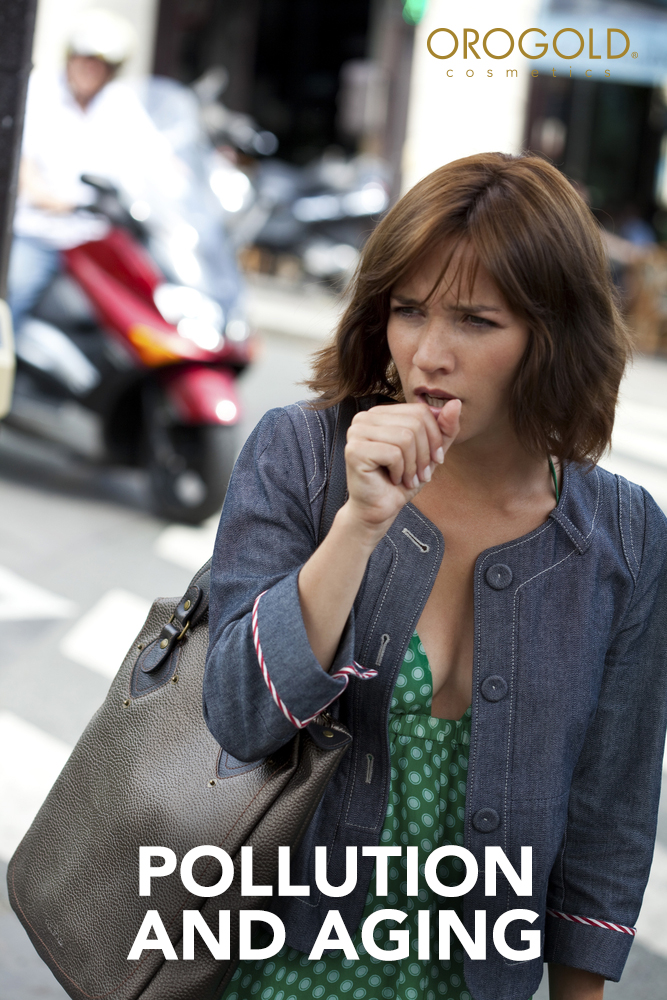Pollution and Aging

Proper skin care means guarding your skin against the various potential troubles it might face each day. You should know how important sunscreen is when it comes to helping stop premature aging and protecting your skin. Most people also know that regular moisturizing is ideal when it comes to ensuring your skin maintains its natural barriers and healthy looks. Dull skin is seldom a problem when properly moisturizing. Each of our products serves a function by protecting against common ailments. This is the more exacting side of skin care. Unfortunately, some things are a bit harder to prepare for than others. Pollution can actually have an impact on your skin. Some professionals have even started to link it to premature aging. This is a large concern for those of us living in urban areas, but let’s look at the full picture for a better understanding of the link between pollution and again before worrying too much.
How Does Pollution Hurt My Skin?
The word “pollution” is somewhat nebulous when trying to explain how it can impact your skin. Pollution covers a wide variety of possible sources of the problem, but we’re largely concerned with two: ozone and nanoparticles. Ozone is a chemical combination made from exhaust and natural air that tends to form far higher up in the sky than most of us normally encounter. It does form in small pockets at ground level occasionally. Free ozone can negatively impact your skin’s natural oils and therefore one part of its natural defenses. Some people use ozone therapy in skin care, but this uses minute amounts to try to harness potential benefits without the broad negatives of a patch of free ozone. Similarly, nanoparticles are bits of matter floating through the air. These come from various sources, but they can react with one another and lead to problems. As with ozone, they act against your skin’s natural protective oils and reduce their effectiveness.
A Lull in the Defense
One thing people should always be wary of are things that decrease their skin’s natural defenses. Skin care, for all it offers to control oils, doesn’t try to hurt your natural defense, but instead works to minimize problems with them while supporting their natural functions. Reduced barriers allow more things to penetrate into your skin. One of the worst things it does is actually increase your skin’s sensitivity to sun damage. As a result, your skin will react far faster to the sun and more free radicals will become loose in your skin. Similarly, other sources of free radicals will find less resistance in your skin. In essence, decreased barrier lead you to have sensitized skin that will react to almost everything more and to its own detriment. You should note that this increased sensitivity and rate of damage is what ends up causing premature aging.
What You Can Do
All is not lost simply due to the ubiquity of pollution in our day-to-day lives. The biggest places that pollution is a major skin care worry tend to be cities with known pollution problems. New York and Los Angeles are particularly egregious offenders in this regard, but you can still somewhat minimize the problem there as well. Watch for pollution warnings and don’t go out on those days. Similarly, you should ensure you’re using antioxidant-rich products and eating a diet with your share of dark, leafy greens or another antioxidant rich food. This will help minimize the free radical damage that can happen from weakened skin barriers. None of these are a perfect solution to the pollution problem, but they will help prevent it from getting out of hand.
Pollution and aging share a somewhat surprising link. While pollution alone does not cause you to age, it impacts your skin’s ability to protect and repair itself in ways that make premature aging more likely. Traditional techniques to reduce the amount of damage your skin takes from outside sources are useful in protecting your skin in this case and can help minimize the damage. Those spending a lot of time out and about in a polluted area though should definitely consider thoroughly washing and cleansing their face afterwards to help their skin resist and repair the problems the pollution might have caused.

